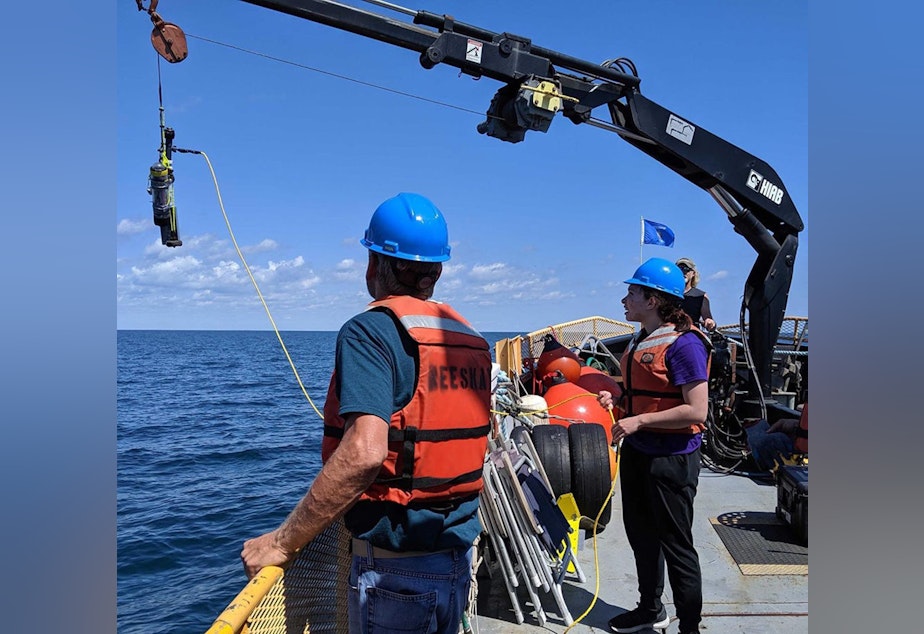Scientists Hope To Find A Meteorite — At The Bottom Of Lake Michigan

In early 2017, the American Meteor Society got hundreds of reports from people across Illinois and Wisconsin of a green, fiery streak blazing across the sky. It was a meteorite careening straight into Lake Michigan.
Ever since, hobbyists and scientists have been looking for its remains in the bottom of the lake.
Mark Hammergren, an astronomer and planetary scientist at the Adler Planetarium, is on a scientific mission to find bits and pieces of that meteorite about 200 feet deep. He’s leading the Aquarius Project, where volunteers — some of them student participants — sort through lake-bottom sediment for meteorite residue.
It might sound like a painstaking effort. But considering three-quarters of the Earth is covered in water, Hammergren says, finding these “penny-sized” remnants would “open up a new realm of discovery.”
When organizers started mapping out their quest, they were surprised to find out that very little was known about the bottom of Lake Michigan.
“We figured things would be mapped out in great detail and we’d know what the bottom of the lake looked like, whether it was smooth sediments or rocky,” he says, “but it turns out that that was unknown, especially in this area.”
For the next step in their hunt, Hammergren and his team needed to construct a tool that could find the scattered pieces.
“The vast majority of meteorites contain little bits of iron, and so they respond to magnets. So, that’s how the idea of the Aquarius project meteorite sled was born,” he says.
After the magnetic sled returns to the surface from scraping the bottom of the lake, teams of volunteers shift through the sediment in hopes of discovering a tiny piece of meteorite.
So far, they haven’t uncovered any bits of the infamous 2017 space rock. But for Hammergren, the search is worth it — and will continue to press on.
“They contain remnants of the formation of our solar system,” he says. “We can’t get that information anywhere else.”
Chris Bentley produced and edited this interview for broadcast with Todd Mundt. Serena McMahon adapted it for the web.
This article was originally published on WBUR.org. [Copyright 2019 NPR]
